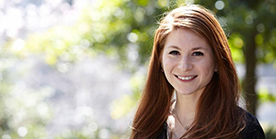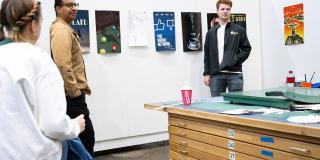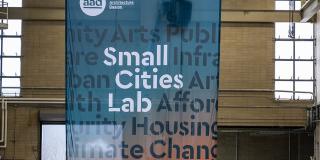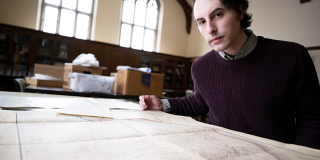When she entered history professor Steven Cutcliffe’s classroom as a Lehigh undergraduate, Carrie Rich ’07 realized she was in for an unusual learning experience. Not one other student registered for the seminar-stylecourse. Rich was surprised the course hadn’t been canceled.
Cutcliffe, who was also her adviser and director of the science, technology and society program, took the success of his students seriously; he started the course that semester with a single student. He engaged Rich through lively discussions and readings and even took his teaching out of the classroom into the real world. Another student joined later, but it was still an unusually intense course for Rich.
“We used the Socratic dialogue method to learn, so I had to be on all the time, work really hard, and think and respond on the fly,” recalled Rich. “Professor Cutcliffe challenged me to think differently about what education means and navigated me through thinking creatively, which has served me well professionally. He encouraged me to volunteer in the community. I volunteered at a nonprofit health center, where I learned the meaning of gratitude.”
Rich counts her experiences with this course as significantly formative in her later decision to start the Global Good Fund (GGF).As cofounder and CEO, she created the company in 2012 to accelerate the leadership development of entrepreneurs across the globe using business for social good. Rich connects established business executives with emerging social entrepreneurs to be mentored, scale their companies and ultimately address complex social issues. Underpinned by robust analysis of the global, economical, environmental and social factors that determine individual and societal health, GGF’s philosophy aims to improve lives around the world.
"Each opportunity taught me about leadership. I learned how to nurture other people not just myself"
“I started thinking, what if we could find young people throughout the world who have a strong work ethic and care about making the world a better place but lack experience? We could pair these emerging leaders with experienced business leaders and put targeted financial capital behind the pair—what a catalyst for good that dynamic would be.”
Her concept began forming on her 26th birthday. Singleton gave her $100, saying that instead of taking her to lunch for her birthday, she should use it for her idea. Rich approached six organizations she knew and asked each to submit a proposal for what they would do with 10 times the amount of her birthday gift if it had a sustainable social impact. Inspired by their responses, Rich wrote to her friends and family for donations, with the subject heading, “The Global Good Fund.” She beat her $6,000 goal, raising $6,052.
Two weeks later, Rich received an email from someone who said they’d met at a conference and offered a $1 million anonymous contribution. “Now I didn’t know what to do. I went to [Singleton], and he ended up matching the gift,” she said. In three months, Rich had $2 million start-up capital for her dream of funding global good.
Though Rich loved her job, Singleton encouraged her to go beyond what felt comfortable. He supported building a board of directors and advisers that could get the GGF started. The board asked her to lead the organization.
“Today, we have a small staff, and we have supported 38 social entrepreneurs to date. Half are domestic. Half are nonprofits with sustainable revenue streams. More than half of the entrepreneurs we support are women, which is important to me,” she says.
GGF has indirectly helped create 100,000 jobs in some of the most underserved communities around the world. Recently, the company opened an office in Colombia, in addition to its offices in Washington, D.C., and New York City. More than 100 seasoned and socially minded executives mentor emerging social entrepreneurs globally.
“People are looking for structured, meaningful ways to translate their business success into social significance. We’re exclusively focused on growing the leadership capacity of social entrepreneurs who are at a critical inflection point, a point at which their leadership will influence whether they will have sustainable social impact,” Rich explained.
Rich also teaches at George Washington University and the Amani Institute in Kenya and writes for media outlets, including Forbes, Entrepreneur and Huffington Post. She sits on the boards of several companies and organizations and has been lauded for her achievements. She received the EY Entrepreneur of the Year award, POLITICO Women Who Rule award, Washington Business Journal 40 under 40, Entrepreneur.com Top 30 Start-ups to Watch, Stevie Award for Women in Business, Asian Social Innovation CEO of the Year, Social Enterprise Alliance 50 under 40 and Empact100.
When a new challenge enters her life, Rich thinks of the children’s story Harold and the Purple Crayon. Harold draws what doesn’t exist. “It helps me remember that there is always an opportunity to design something great if it adds value and makes a difference in the world,” she said.
-Manasee Wagh
- Acumen Fall 2016






